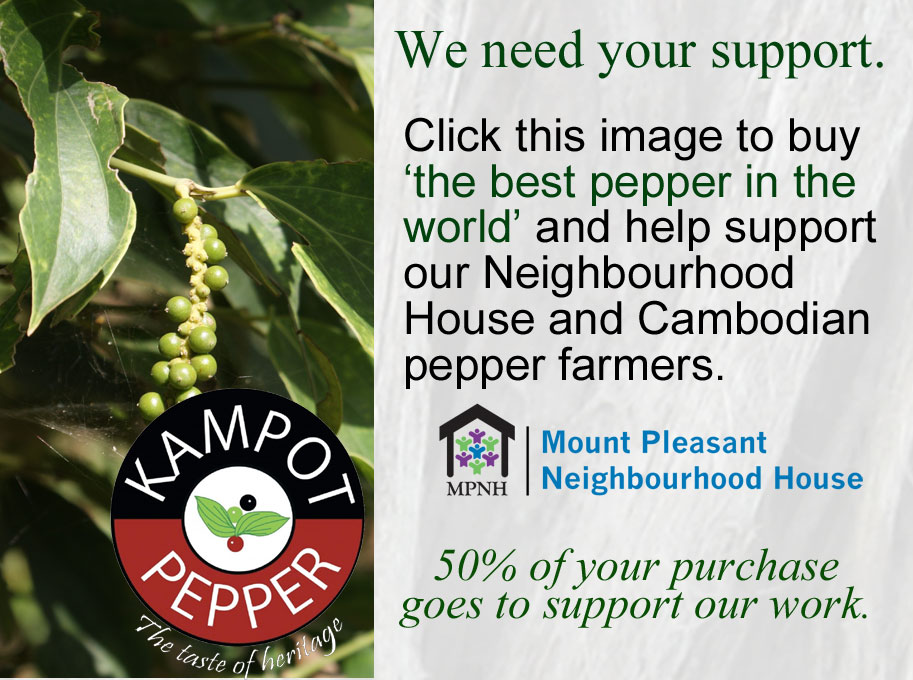The world has changed. Now more than at any time in living memory we need to pull together to get through this crisis. As my dear grandmother used to say about difficult times: “This too shall pass…”

To do our part during this crisis we are going to increase the charity contribution from 35% to 50%. If one percent of Canadians chose Kampot Pepper that would contribute $7,500,000 to charities and non-profits who desperately need all the help they can get.
Here’s our press announcement:
FOR IMMEDIATE RELEASE:
Social Purchasing Portal helps raise funds for charities and non-profits.
Vancouver, BC – April 6, 2020
A local Social Purpose brand, ‘Best Pepper Ever’ offers charities and non-profits a simple and safe way to raise funds during the COVID-19 crisis. Groups sign up for free and they receive 50% of all sales.
Joseph MacLean, creator of the KampotPepper.Gives portal explained how charities and non-profits can use an online social purchasing portal to generate revenue during the pandemic. Kampot Pepper, long considered the best pepper in the world, holds the prestigious PGI certification (Protected Geographical Indication) putting it on the same footing as other appellations of origin like Champagne, Cognac and Darjeeling Tea.
Joseph continued, “Social purpose distribution of Fair Trade Kampot Pepper not only helps charities and non-profits but is also helping small pepper farmers rebuild after the devastation of the Cambodian Genocide.”
In 1960 the Kampot region produced 3000 tons of pepper but their ancient farming system was all but destroyed when Pol Pot and the Khmer Rouge made it punishable by death to grow pepper. Although Pol Pot was removed from power in 1979 the rebels were only finally ousted in 1999. In 2000 two tons of pepper was produced, last year 75 tons. They are rebuilding but need Fair Trade access to Western markets.
“Another issue that Fair Trade social purchasing addresses…’ he shared, “…is that the small growers are losing ground to the large, mostly foreign owned growers that are no longer buying the pepper but buying the farms. Last year almost one quarter of the smallest growers lost or sold their farms or abandoned the business because they cannot sell their pepper.”
-30-